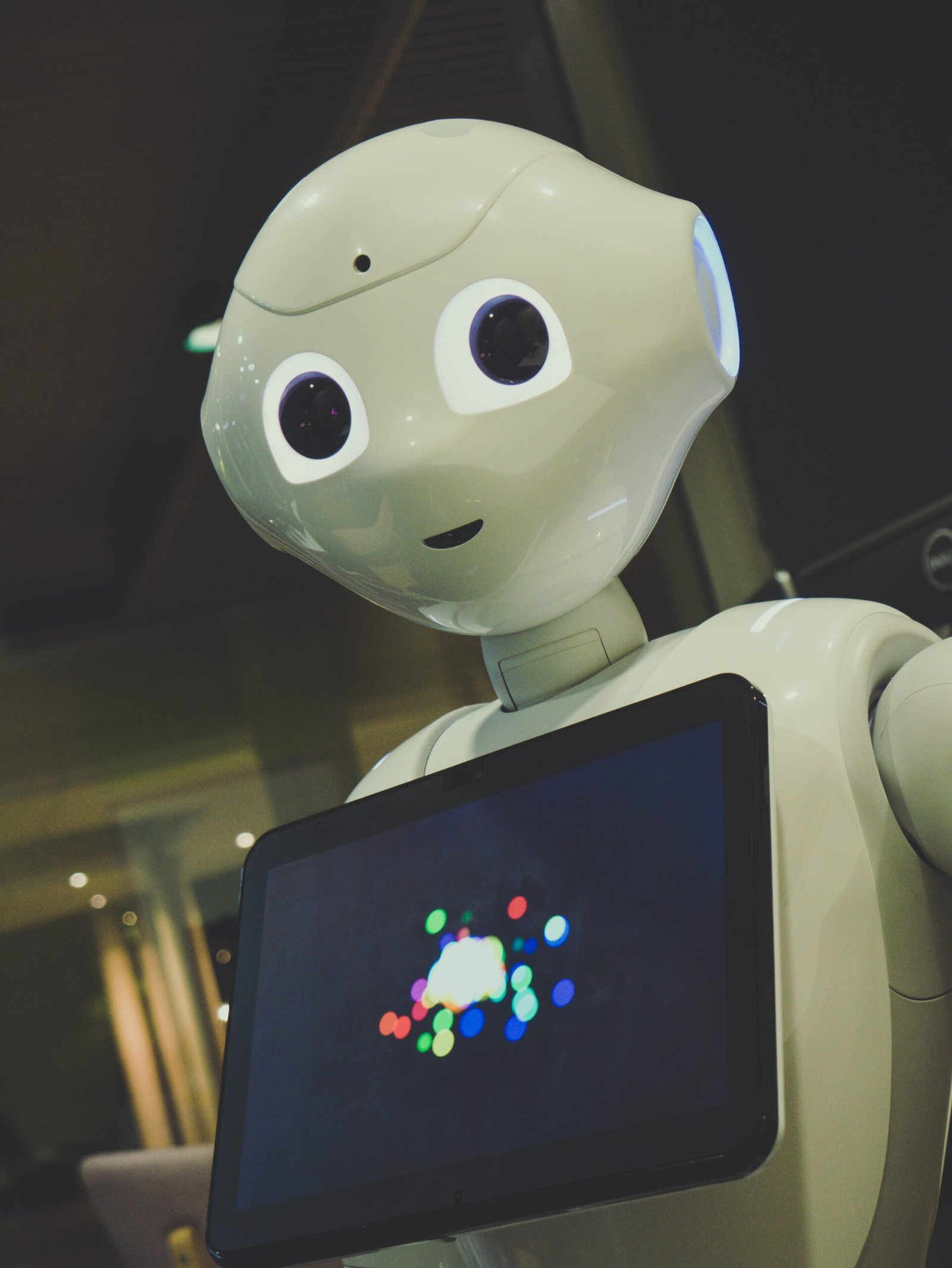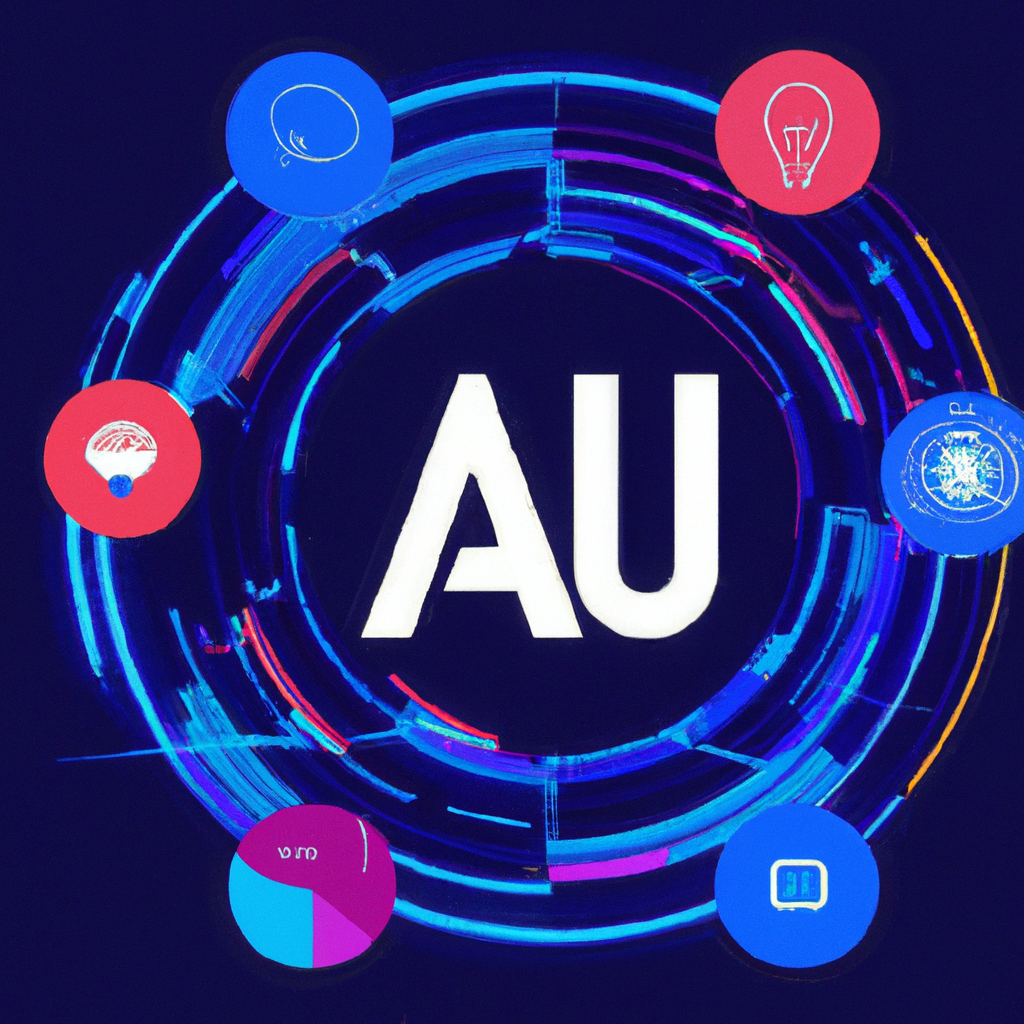Imagine a world where technology becomes so intertwined with our daily lives that it seamlessly assists us in making decisions, completing tasks, and even predicting our needs before we realize them ourselves. This is the power of Artificial Intelligence, or AI, and it is not just a concept restricted to science fiction novels or futuristic movies. AI has become an integral part of our everyday life, revolutionizing various industries and transforming the way we interact with technology. From voice assistants to personalized recommendations, AI’s presence is pervasive, enhancing our experiences and making our lives easier in ways we may not even consciously realize. In this article, we explore the diverse ways AI is utilized in our everyday lives and how its impact continues to shape our future.

This image is property of images.unsplash.com.
Personal Assistants
Smart speakers
Smart speakers, such as Amazon Echo or Google Home, are becoming increasingly popular in households worldwide. These devices utilize artificial intelligence to understand and respond to voice commands, making them a convenient personal assistant. With just a simple “Hey Siri” or “Alexa,” you can ask these smart speakers to play your favorite music, set a reminder, or even order groceries online. Thanks to AI technology, they can understand natural language and provide assistance in a user-friendly manner.
Virtual assistants on smartphones
Virtual assistants like Apple’s Siri, Google Assistant, or Microsoft’s Cortana have revolutionized the way we interact with our smartphones. These AI-powered assistants reside on our devices, ready to help us with various tasks. From setting reminders and appointments to providing weather updates and answering general knowledge questions, virtual assistants have become an integral part of our daily lives. They use machine learning algorithms to understand user preferences and adapt their responses accordingly, providing personalized assistance.
Online Shopping
Product recommendations
When you’re shopping online, AI plays a significant role in offering personalized product recommendations. E-commerce giants like Amazon and Flipkart use sophisticated algorithms to analyze your browsing and purchasing history, as well as that of similar users. By leveraging this data, AI algorithms can predict your preferences and suggest items that you might be interested in buying. This not only enhances the shopping experience but also helps online retailers in increasing sales and customer satisfaction.
Chatbots for customer support
Online retailers also employ AI-powered chatbots for customer support. These chatbots can quickly answer commonly asked questions, handle basic troubleshooting, and guide users through the online shopping process. By leveraging natural language processing and machine learning, chatbots can provide timely assistance without the need for human intervention. This not only streamlines customer support but also improves response times, ensuring a seamless shopping experience.
Social Media
Content filtering
AI algorithms are used in social media platforms to filter and moderate content. With the vast amount of content being generated and shared every second, it is impossible for humans to manually monitor everything. AI-powered systems can analyze text, images, and videos, flagging potentially inappropriate or offensive content. By automating content filtering, social media platforms aim to maintain a safe and positive online environment.
Face recognition
Face recognition technology, powered by AI, has become a crucial component of social media applications. From tagging friends in photos to unlocking our smartphones with facial recognition, AI algorithms can quickly identify and analyze faces. Social media platforms employ this technology to enhance user experience, making it easier to share and organize photos, create personalized filters, and even recommend new connections based on facial similarities.
Navigation Apps
Route optimization
Navigation apps like Google Maps or Waze utilize AI algorithms to optimize routes and provide accurate directions. By analyzing real-time traffic data, historical patterns, and user feedback, these apps can suggest the fastest and most efficient route for your journey. Moreover, AI algorithms consider various factors such as the time of day, road conditions, and anticipated delays to ensure that you reach your destination as quickly as possible.
Real-time traffic updates
AI also enables navigation apps to provide real-time traffic updates. By analyzing GPS data from countless users, these apps can detect traffic congestion, accidents, or roadblocks, and suggest alternative routes. This information is constantly updated, allowing users to adapt their travel plans accordingly and avoid unnecessary delays. Thanks to AI, navigation apps have revolutionized the way we navigate through busy cities and highways.

This image is property of images.unsplash.com.
Entertainment
Content recommendation
From YouTube to Netflix, AI has transformed the way we discover new movies, TV shows, and music. These platforms utilize AI algorithms that analyze your viewing or listening history, as well as the preferences of similar users, to offer personalized content recommendations. By suggesting content tailored to your interests, AI ensures a more engaging and enjoyable entertainment experience. It allows us to explore new content that we might otherwise have missed.
Voice and image recognition
AI-powered voice and image recognition technology have brought interactive entertainment to new heights. Virtual assistants like Alexa or Google Assistant can understand and respond to voice commands, allowing us to control our entertainment systems hands-free. Additionally, image recognition technology enables us to search for similar images or identify objects, landmarks, or celebrities while watching a movie or browsing through social media. These advancements have made our entertainment experiences more immersive and interactive.
Healthcare
Medical diagnosis
AI has made significant advancements in the field of medical diagnosis. AI algorithms can analyze vast amounts of patient data, including medical images, test results, and medical histories. By comparing this data to known patterns and databases, AI can assist healthcare professionals in accurately diagnosing diseases and conditions. This technology not only speeds up the diagnosis process but also reduces errors, leading to improved patient outcomes.
Drug discovery
The field of drug discovery has greatly benefited from AI. By utilizing machine learning algorithms, AI can analyze massive amounts of biological and chemical data to identify potential drug candidates. This technology can predict the effectiveness and safety of potential drugs, helping researchers narrow down their focus and accelerate the drug development process. AI algorithms can also recommend personalized treatments based on genetic data, revolutionizing personalized medicine.

This image is property of images.unsplash.com.
Cybersecurity
Fraud detection
AI plays a vital role in fraud detection and prevention. In the era of online transactions and digital banking, AI algorithms can analyze vast amounts of data, identifying patterns and anomalies that indicate potential fraudulent activities. By continuously monitoring transactions and user behaviors, AI-powered systems can detect and flag suspicious activities in real-time, preventing financial losses for individuals and organizations alike.
Antivirus software
The battle against computer viruses and malware is a constant one, with new threats emerging every day. AI has become an invaluable tool in the fight against cyber threats. Antivirus software utilizes AI algorithms to scan and analyze files, identifying potential threats based on known patterns and behaviors. This enables antivirus software to protect systems from new and emerging threats, even before specific signatures are available. AI-powered antivirus software provides enhanced protection and ensures a safer digital experience.
Autonomous Vehicles
Self-driving cars
Self-driving cars are a prime example of how AI is transforming transportation. By utilizing a combination of sensors, cameras, and AI algorithms, self-driving cars can navigate roads, interpret traffic signals, and respond to changing road conditions. AI enables these vehicles to understand their surroundings and make informed decisions, ensuring safer and more efficient transportation for passengers.
Advanced driver-assistance systems
AI is also used in advanced driver-assistance systems (ADAS), which enhance the safety and comfort of driving. ADAS utilizes cameras and sensors to monitor the vehicle’s surroundings, alerting the driver to potential hazards or assisting in maneuvering. Features like lane departure warning, adaptive cruise control, and automatic emergency braking rely on AI algorithms to analyze real-time data and provide timely assistance, reducing accidents and improving overall road safety.

Language Translation
Real-time translation apps
Language barriers are no longer a significant obstacle in our increasingly connected world, thanks to AI-powered real-time translation apps. These apps utilize machine learning algorithms to process and translate spoken or written language in real-time. From translating conversations during international travel to instantly translating written documents, AI has made communication across different languages more accessible and convenient than ever before.
Automatic transcription services
AI-powered automatic transcription services have revolutionized the way we process and analyze audio and video content. From transcribing interviews and meetings to captioning videos for accessibility, AI algorithms can accurately convert spoken language into written text. This technology not only saves time but also enables a wider audience to access information, making it an indispensable tool in various industries such as journalism, education, and entertainment.
Finance
Automated trading
AI has had a significant impact on the financial industry, particularly in the realm of automated trading. AI algorithms can analyze vast amounts of financial data, market trends, and historical patterns to make informed trading decisions. By leveraging machine learning and predictive analytics, AI can execute trades at high speeds and react to market conditions in real-time. This technology has revolutionized trading strategies and contributed to the growth of algorithmic trading.
Risk assessment
AI algorithms are also used in risk assessment and fraud prevention in the financial sector. By analyzing data such as credit scores, transaction histories, and behavioral patterns, AI can identify potential risks or fraudulent activities. This technology enables financial institutions to make informed decisions regarding creditworthiness, loan approvals, and fraud detection, ultimately ensuring a secure and reliable financial ecosystem.
In conclusion, artificial intelligence has become an integral part of our everyday lives, permeating various sectors and enhancing our experiences. From personal assistants and online shopping to entertainment and healthcare, AI is revolutionizing the way we interact with technology and transforming industries. With continued advancements in AI technology, we can expect further improvements and innovations that will further shape our daily lives for the better. So embrace the power of AI and enjoy the countless benefits it brings!
